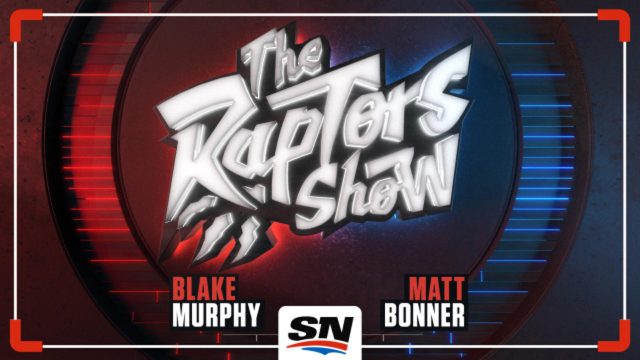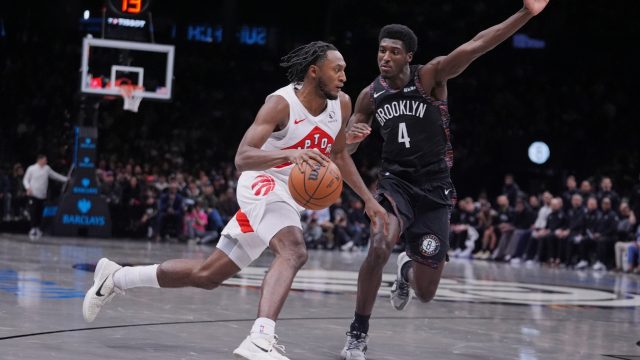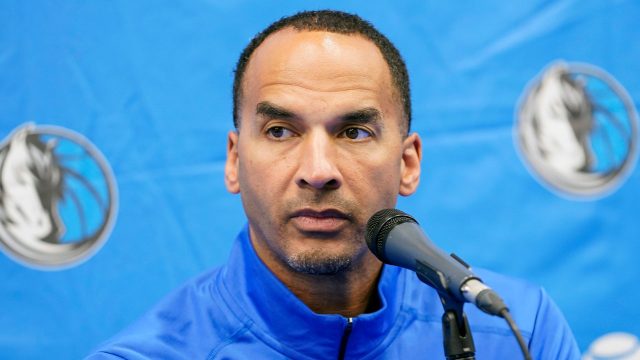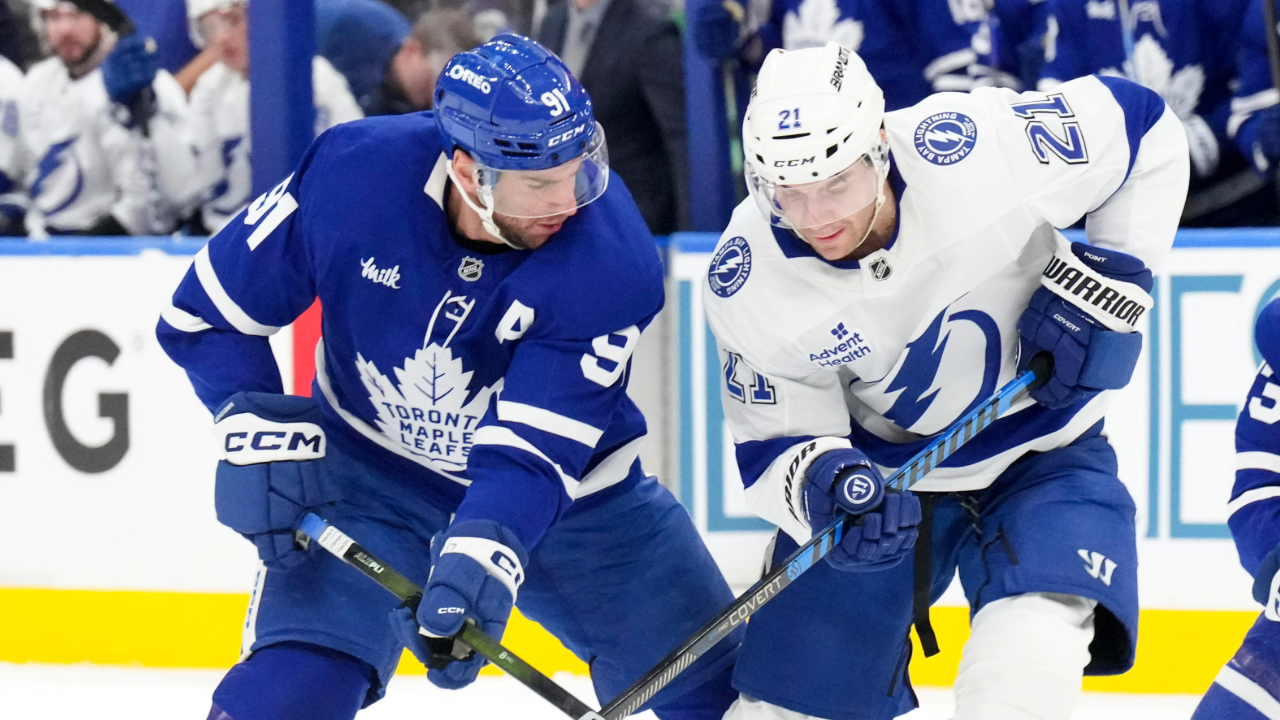
CLEVELAND — It didn’t take long for the NBA season to start.
The ball went up on 2025-26 a month ago, sure, but the real thing — the portion of the calendar when drama, intrigue and the unexpected stuff everyone kind of expects starts happening — we’re well into that now.
The Toronto Raptors have weathered their early-season anxiety, having won five of their past six after an ugly four-game losing streak that caused a wave of panic through some corners of the locker room, and some generally nervous moments. This is not a team built to be bad, so righting the ship was greeted by a significant wave of relief.
But elsewhere? The madness has started early. Inevitably, it spreads.
In Memphis, we have putative superstar Ja Morant not-so-quietly quitting on the franchise that has him on track to be worth a quarter billion before he turns 29, forcing the hand of a management team that has already fired one coach to appease him. It’s a mess so deep and difficult to unravel — the market for small point guards that have discipline issues, don’t defend well, are shooting 35.2 per cent from the floor and 16.7 per cent from three and turn it over four times a game in-between injuries and suspensions is limited — that it could threaten the long-term viability of a franchise in one of the NBA’s smallest markets.
In Sacramento, there was Kings head coach Doug Christie, making a fiery pre-game speech at his regularly scheduled media availability about how his wobbly roster was going to prove all “the haters, the fakers” wrong, and that “eventually we’re gonna be coming — the Kings Show. Sac proud, know that.”
Inspiring stuff, but maybe not to the Kings, who promptly lost 122-108 at home to the Denver Nuggets on Tuesday night before getting pumped 133-100 by the visiting Atlanta Hawks on Wednesday to fall to 3-9 in the Western Conference, a half game up on last-place New Orleans, another franchise in free fall. No one will be shocked when Sacramento start trying to sell off their expensive veterans — Domantas Sabonis, DeMar DeRozan and Zach LaVine — only to learn the league is really only interested in fourth-year wing Keegan Murray.
-

-
The Raptors Show
Sportsnet’s Blake Murphy and two-time NBA champion Matt Bonner cover all things Raptors and the NBA. Airing every weekday live on Sportsnet 590 The FAN from 11 a.m.-noon ET.
There are other hotspots: the Orlando Magic went all-in on becoming contenders this season, blowing their stash of draft capital on Desmond Bane and have only a 6-6 record to show for it. Their offence — as ever — is mired in the mud, but now their defence is lagging too, which is why Jamahl Mosley is a leading candidate to be the first in-season coach firing of the year.
But all of this is just context for the biggest fiasco of them all down in Dallas, where the Mavericks turned the NBA on its collective head by firing embattled general manager Nico Harrison nine months after he traded then-25-year-old Luka Doncic — who had led Dallas to both a conference finals appearance and an NBA Finals showing while qualifying for first-team All-NBA honours for five straight seasons. It was a move widely panned at the time and has only gotten worse since.
The Mavericks instantly fell out of playoff contention last season after a blizzard of injuries. Their short-term fortunes were briefly buoyed when they stumbled into the No. 1 pick and Duke sensation Cooper Flagg. The only problem was that Harrison failed to add a point guard to help hold things down while Kyrie Irving recovered from an ACL injury. It also had Flagg’s mom complaining on social media about her son having to deal with the distractions of the “Fire Nico” chants while shooting crucial free throws in the fourth quarter. His goose was ultimately cooked by the Mavericks’ 3-8 start, while Doncic was averaging 37-9-9 for the 8-3 Los Angeles Lakers.
The reaction from everyone I had a chance to speak with about Dallas’ predicament is that their best course of action is to sacrifice this season in the name of getting another high lottery pick in a strong draft and ideally a young star that can be Flagg’s running mate for the next decade or so. And while re-orientating the team’s timeline around their prized 18-year-old star-to-be — rather than 32-year-old Anthony Davis and 33-year-old Irving — maybe see if in trading off some of their talent they can get younger and make up for the fact that they don’t have control of their own draft picks in 2027, 2028 or 2029, because of deals Harrison made to build the team around Doncic.
The Raptors — like every other front office in the league — spent time on Tuesday and will spend plenty more, likely, having internal discussions about what Harrison’s firing could mean for them and the rest of the NBA.
It’s the same regarding the situations in Memphis and Sacramento, and to a lesser extent, Orlando.
Raptors general manager Bobby Webster has been through this many times before. When he was former president Masai Ujiri’s right-hand man, Webster was part of the strategy around being in the mix for Giannis Antetokounmpo, Kevin Durant and Damian Lillard in recent years, and was also the point person when the Raptors acquired Kawhi Leonard. He was also very much behind the Raptors’ decision to trade and extend Brandon Ingram.
But now it’s his show, and his first time dealing with the NBA’s chaos season as the person with the final voice on basketball decisions.
Will this iteration of the Raptors front office swing big? Nibble at the edges? Or will they opt to let the group as assembled cook, hoping the development of youngsters like Collin Murray-Boyles, Gradey Dick, Jamal Shead and Ja’Kobe Walter will either help push their established group of starters over the top, or set the team up for the next acquisition cycle?
There would be no bigger swing than Davis, a 10-time all-star with a glittering collection of All-NBA and All-Defence nods on his resume. It just so happens that the Raptors’ weaknesses — poor rim protection and weak defensive rebounding — are among Davis’s many strengths.
The Raptors have all their picks going forward, have some interesting young players that could spice up a deal and some young vets on contracts that could make the money work. Working in their favour — theoretically — is that Toronto recently did business with Rich Paul, who is Davis’s agent and who also represents Ingram.
Could it happen? No idea. Would the Raptors be a better team with Davis on it, even if it meant, and this is just a ‘for instance,’ giving up likely two of Immanuel Quickley, RJ Barrett, Jakob Poeltl, and potentially some draft capital or a good young player? Presumably, as long as Davis — who has averaged just 54 games played over the last seven seasons, which puts him almost dead even with the frequently injured Ingram in that regard — stays on the court.
Working against the Mavericks and in favour of most of the NBA is that, given his age, his contract and his injury history, the bidding for Davis will likely start relatively low, at least in contrast to his profile.
Would the Raptors try and sneak in? Should they? Will another one of the NBA’s smouldering messes provide an opportunity?
They are the kind of opportunities and decisions that can vault a team forward, hold it back or grease a slide into their own brand of chaos.
No one will possibly be able to know for months how things will unfold — the NBA trade deadline is Feb. 5. The Mavericks don’t even have a full-time general manager.
But it’s already that time in the NBA season, where a front office has to make the proper decisions amidst the chaos, and Bobby Webster’s job is to get it right by doing something or nothing at all.






